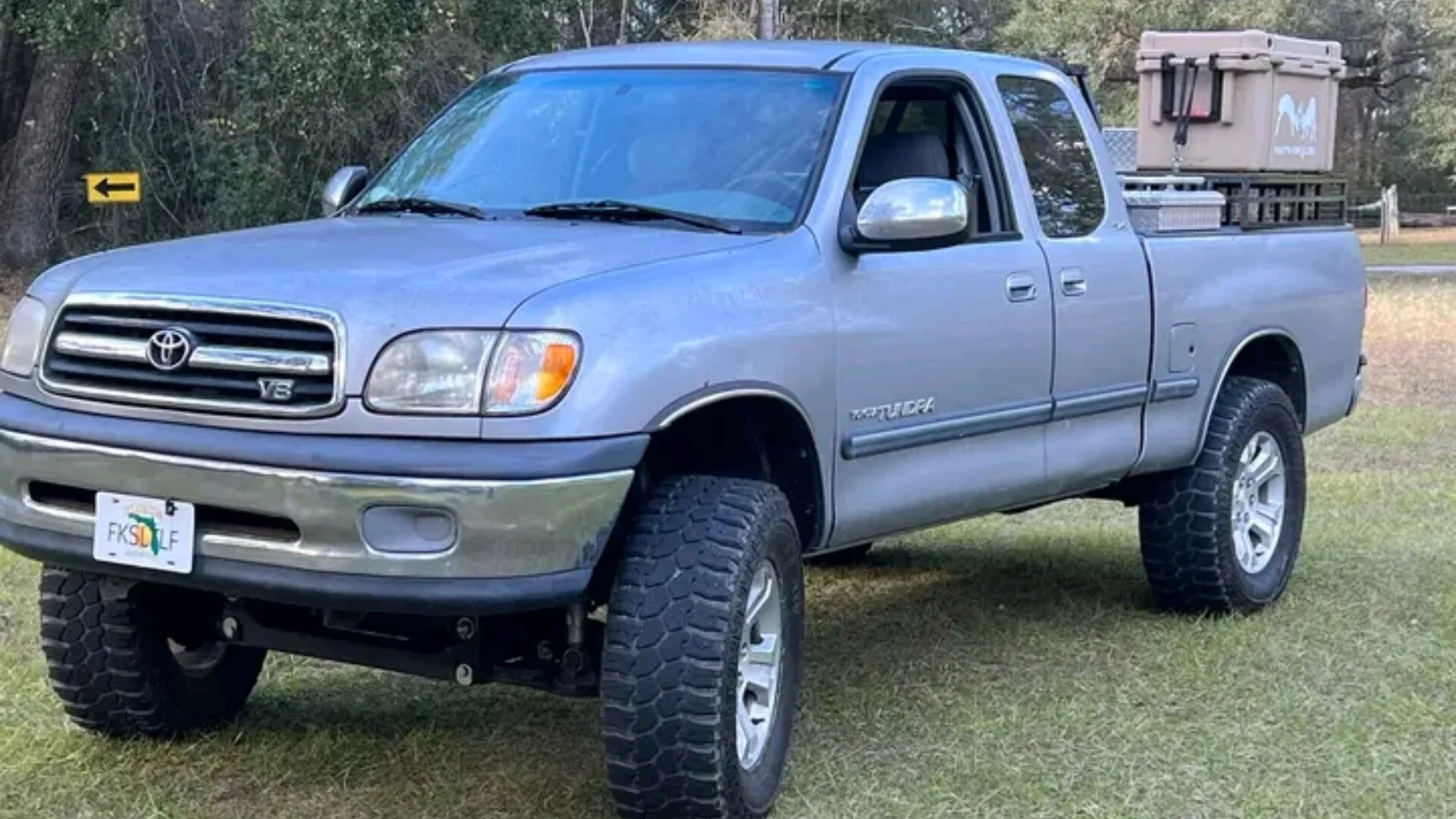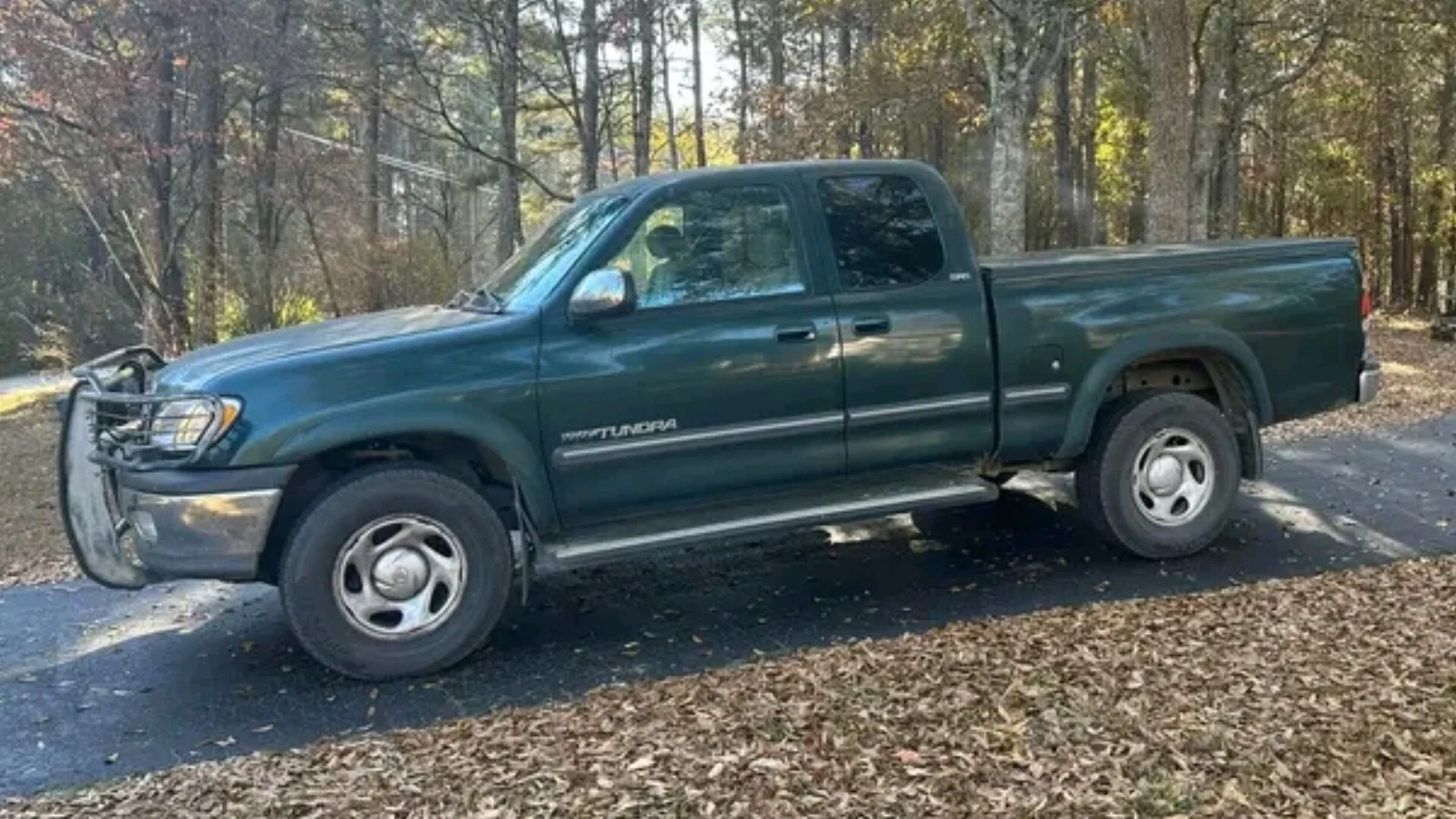A COMPREHENSIVE REVIEW OF THE 2001 TOYOTA TUNDRA: PROS AND CONS EXPLORED
In the highly competitive world of pickup trucks, the 2001 Toyota Tundra made a significant impact with its debut. Offering a combination of ruggedness, reliability, and a comfortable ride, the Tundra quickly garnered attention from truck enthusiasts.
In this in-depth review, we will analyze the pros and cons of the 2001 Toyota Tundra, providing a comprehensive overview of its performance, features, and overall value.
COST ANALYSIS: When it comes to pricing, the 2001 Toyota Tundra offered consumers an attractive value proposition. With a starting MSRP ranging from $15,995 for the base model to $25,995 for the top-tier Limited trim, the Tundra provided a wide range of options to cater to diverse budgets. The competitive pricing, coupled with Toyota's reputation for durability, made the Tundra an enticing choice for truck enthusiasts seeking reliability without breaking the bank.
DRIVETRAIN OPTIONS: Toyota understood the importance of providing a variety of drivetrain options to meet the diverse needs of its customers. The 2001 Tundra offered a choice between rear-wheel drive (RWD) and four-wheel drive (4WD) configurations. The RWD models were ideal for everyday use and provided excellent fuel efficiency, while the 4WD models were designed to handle more challenging terrains and off-road adventures. This flexibility in drivetrain options ensured that drivers could find the Tundra that best suited their specific requirements.
HORSEPOWER AND ENGINE OFFERINGS: Under the hood, the 2001 Toyota Tundra delivered impressive performance thanks to its range of powertrain options. The base model was equipped with a 3.4-liter V6 engine, generating 190 horsepower and 220 lb-ft of torque. For those seeking more power, Toyota offered an optional 4.7-liter V8 engine that churned out a robust 245 horsepower and 315 lb-ft of torque. This upgrade provided the Tundra with ample towing capacity and the ability to tackle demanding tasks with ease. The availability of these two engine options allowed customers to choose the power level that aligned with their specific needs.
PERFORMANCE AND CAPABILITY: The 2001 Toyota Tundra showcased exceptional performance and capability, making it a compelling choice in the competitive truck market. With a maximum towing capacity of up to 7,200 pounds, depending on the configuration, the Tundra proved itself capable of handling heavy loads. Additionally, the truck's payload capacity of up to 2,000 pounds further emphasized its versatility. Whether it was hauling equipment to a job site or embarking on an outdoor adventure, the Tundra's performance capabilities ensured it could rise to any challenge.
SAFETY FEATURES AND TECHNOLOGY: Toyota placed great emphasis on safety and technology in the 2001 Tundra. Standard safety features included an advanced airbag system, anti-lock brakes, and child safety locks. Optional features such as traction control and stability control further enhanced the truck's safety profile. In terms of technology, the Tundra offered features like power windows, keyless entry, and an optional premium sound system, providing drivers and passengers with convenience and comfort.
PROS OF THE 2001 TOYOTA TUNDRA:
- Reliability: One of the standout features of the 2001 Tundra is its renowned reliability. Built with Toyota's reputation for durability, the Tundra boasts a solid construction that can withstand rigorous use, making it an ideal choice for those seeking a long-lasting truck.
- Spacious Interior: The Tundra's interior is generously proportioned, providing ample space for both passengers and cargo. With well-designed seating and thoughtful storage options, the cabin offers comfort and convenience, making it an excellent choice for long journeys or hauling equipment.
- Powerful Engine Options: The 2001 Tundra comes equipped with two engine choices: a 3.4-liter V6 and a 4.7-liter V8. Both engines deliver robust power and impressive towing capacity, allowing drivers to tackle challenging tasks with ease.
- Smooth Ride: Despite being a rugged workhorse, the Tundra surprises with its smooth and comfortable ride quality. Its suspension system effectively absorbs bumps and road imperfections, ensuring a pleasant driving experience on various terrains.
- Safety Features: Toyota prioritized safety in the 2001 Tundra, incorporating features such as four-wheel anti-lock brakes, dual front airbags, and side-impact door beams. These safety features provide peace of mind for drivers and passengers alike.
CONS OF THE 2001 TOYOTA TUNDRA:
- Fuel Efficiency: One of the notable downsides of the 2001 Tundra is its fuel efficiency. Compared to some of its competitors, the Tundra's V8 engine tends to be less efficient, resulting in higher fuel consumption, especially during heavy hauling or towing.
- Limited Cab Options: Unlike its rivals, the 2001 Tundra offers limited cab options, with only an extended Access Cab and a regular cab configuration available. This lack of variety may limit potential buyers who prefer different seating arrangements or extra cargo space.
- Outdated Technology: As a truck from the early 2000s, the 2001 Tundra lacks some of the modern technological features found in more recent models. Infotainment systems, advanced driver-assistance systems, and connectivity options are noticeably absent, which may disappoint tech-savvy buyers.
CONCLUSION:
The 2001 Toyota Tundra's pros outweigh its cons, making it a solid choice for those in need of a reliable and capable pickup truck. With its renowned durability, spacious interior, powerful engine options, and safety features, the Tundra offers a well-rounded package. However, potential buyers should consider the truck's fuel efficiency, limited cab options, and absence of modern technology before making a final decision. Ultimately, the 2001 Toyota Tundra remains a dependable and versatile option that delivers on its promise of reliability and performance in the competitive truck market.
COMMON FAULTS FOUND IN THE 2001 TOYOTA TUNDRA
The Toyota Tundra, known for its reliability and performance, had its fair share of common faults in the 2001 model year. Owners of this popular pickup truck have reported several issues that require attention and maintenance. One of the most prevalent issues reported by owners is the occurrence of transmission problems. Some drivers have experienced rough shifting or slipping gears, which can be attributed to a faulty transmission system. The recommended course of action is to have the transmission fluid checked and changed regularly to prevent potential damage.
Additionally, seeking professional assistance for any unusual noises or vibrations while driving is essential to diagnose and rectify any underlying transmission issues promptly. Another common complaint among 2001 Toyota Tundra owners relates to the braking system. Several instances of brake pedal sponginess or reduced stopping power have been reported. This could be indicative of worn brake pads, rotors, or even a malfunctioning brake booster. Regular brake inspections and maintenance are crucial to ensure the safety and effectiveness of the braking system. If any issues arise, it is advised to consult a certified mechanic for a comprehensive assessment and necessary repairs.
Electrical problems have also been known to plague the 2001 Toyota Tundra. Several owners have reported issues such as malfunctioning power windows, faulty door locks, and sporadic dashboard instrument readings. These electrical glitches can be attributed to wiring issues or faulty components. It is recommended to have an experienced technician perform a thorough inspection of the electrical system to identify and address the root cause of these problems.
Furthermore, a number of owners have expressed concerns about rust formation on the vehicle's frame and undercarriage. The 2001 Toyota Tundra is known to be susceptible to corrosion, particularly in areas exposed to harsh weather conditions and road salt. Regular inspections, rust-proofing treatments, and prompt repairs can help prolong the lifespan of the vehicle's frame and undercarriage, mitigating any potential safety risks associated with rust-related structural damage.
Despite these common faults, it is important to note that the 2001 Toyota Tundra remains a highly regarded truck in terms of durability and overall performance. By addressing these issues promptly and engaging in regular maintenance, owners can continue to enjoy the benefits of this reliable and versatile vehicle. In conclusion, the 2001 Toyota Tundra, while not entirely immune to faults, continues to be a popular choice among truck enthusiasts. Understanding and proactively addressing the common issues mentioned above can help owners maintain the vehicle's longevity and ensure a smooth driving experience. Should any of these faults arise, seeking professional assistance from certified technicians is highly recommended to ensure proper diagnosis and efficient resolution.
MORE ON TOYOTA TUNDRA REVIEWS
> 2000 TOYOTA TUNDRA COMPREHENSIVE REVIEW


